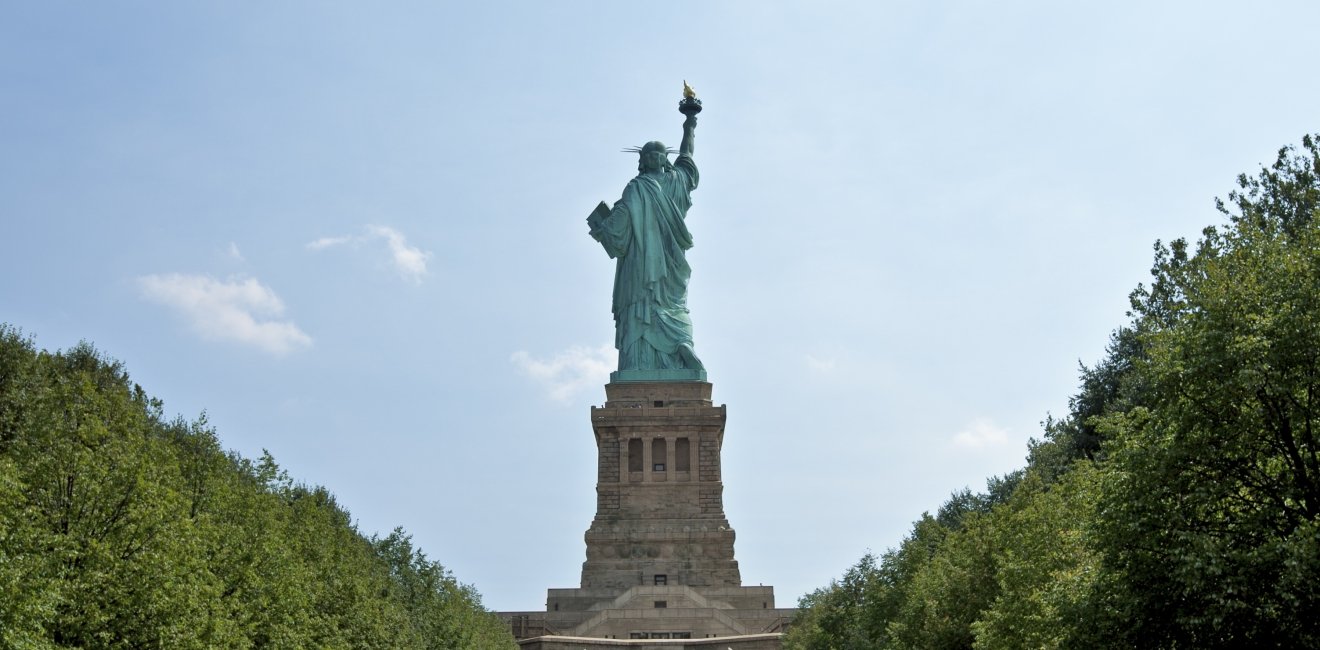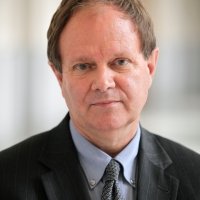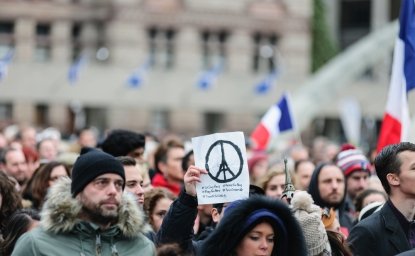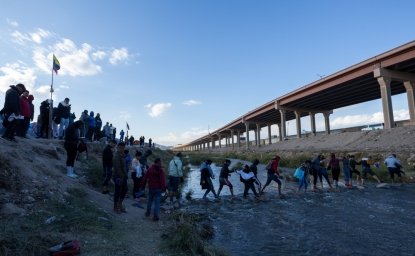The attacks of November 13 in Paris were a classic terrorist operation designed to sow panic and fear, to gain recruits for the cause of jihad, and to provoke a reaction from us in the West that would lead to restrictions on our freedom and the closing of our societies. The choice of Paris as a target, especially the popular neighborhoods of the 10th and 11th arrondissements on a beautiful Friday evening, was strategic. Many of us in the West and indeed around the world have spent time in Paris or lived there, as I have. Paris is like our second, spiritual home and it symbolizes the openness, tolerance, freedom, and diversity that our enemies wish to destroy.
But as horrific as the attacks were and as powerful a symbol as Paris is, we should not forget that many people around the world live in a constant state of terror and conflict. Similar attacks were carried out only weeks before in Lebanon and Turkey. Certainly the people of Syria and Iraq have suffered immensely, and millions of them have given up hope of ever returning to their homelands. They have set out for Europe, the United States, and elsewhere to find safety and a new life for themselves and their families.
If we fall prey to a siege mentality, erecting walls, closing borders, abandoning our humanitarian commitments to refugees, and eliminating avenues for legal immigration, then the enemies of our open society will have won
President Obama called the terrorist attacks in Paris an assault on the civilized world. He is right, inasmuch as these attacks were designed to destroy our open societies and the liberal principles upon which they are based. A vital part of that openness and one of the West’s great strengths is that we allow people to move, to emigrate, and even to settle and become citizens. And we are committed to human rights, including giving refuge to those fleeing violence and persecution. But with openness comes risks, and the challenge for us is how to manage those risks and to defeat our enemies.
Stopping the type of attack that occurred in Paris is incredibly difficult. The problem is compounded by the fact that thousands of Europeans have left home to join the jihad in Syria and Iraq and hundreds of them have returned to Europe emboldened and determined to carry the fight to the West. These are individuals driven by a nihilistic and millenarian ideology that strikes at the heart of all liberal societies.
Obviously, we have to be vigilant to stop these terrorist attacks before they happen, to take the fight to the enemy, using all legal means available to us. Border control is one element of this fight, but it is not the only tool in our arsenal and it is not the most effective way to catch terrorists and to disrupt their plots. The tradeoff between relatively open and closed borders is high, and restricting immigration and asylum-seeking will do little to make us safer. Stopping terrorism requires excellent intelligence and police work, not the sealing of borders, which can be counterproductive, bottling people up in camps, driving them further underground and into the arms of our enemies.
Above all we must avoid conflating terrorism and migration and we must not stigmatize entire populations, painting everyone with the same brush: all Muslims are not jihadis and all refugees are not terrorists. Many of those killed in the Paris attacks were first- or second-generation immigrants and some of them were Muslim. If we fall prey to a siege mentality, erecting walls, closing borders, abandoning our humanitarian commitments to refugees, and eliminating avenues for legal immigration, then the enemies of our open society will have won.
Europe in particular has a lot to lose. The achievements of free movement—a fundamental pillar of European integration—and the construction of a border-free area are under stress. This was true even before the Paris attacks, as a million refugees and asylum-seekers arrived suddenly on Europe’s doorstep, challenging states to process and care for a large population of desperate people and challenging the European Union to come up with new asylum and border policies. The terrorist attacks have heightened these policy dilemmas, giving greater urgency to the need for a coordinated European response, not just to the waves of refugees but to the broader conflicts in the Middle East and Africa.
The attacks have strengthened the hand of those who would like to reverse the liberal trends of free movement, relatively open borders, and respect for human rights, in favor of nationalist policies that would close borders, drastically curtail immigration, push back refugees and asylum-seekers, and persecute ethnic and religious minorities.
The United States also stands to lose. Having strong, open, and peaceful societies is a fundamental U.S. interest and this is especially true for our strongest allies in Europe. Anything that undermines the stability of Europe is a direct threat to the United States. We must lead by example, redoubling our efforts and using our leverage to find a political solution to the conflict in Syria, sharing intelligence and working closely with Europe to disrupt terrorist attacks before they happen, helping to shoulder the burden of refugees that has fallen so heavily on Europe but also on Jordan, Lebanon, and Turkey. We must maintain a strong commitment to fundamental freedoms, to fighting religious hatred and intolerance in all of its forms, and to keeping our society open.
Those who have the most to lose and who are losing by the day are the broken societies in the Middle East and Africa, where millions of the best and brightest have fled in despair, leaving behind highly sectarian movements like ISIS, al-Qaeda, and Boko Haram that are poised to destroy every element of pluralism and impose totalitarian regimes that will lead to greater conflict, misery, and deprivation.
Hence the stakes for freedom and international stability are high and Europe and the United States must avoid the temptation to withdraw from the world, close in upon ourselves, and move away from the openness and diversity that are our greatest strengths. To protect our open societies, we must not close them.
The opinions expressed here are solely those of the author.







